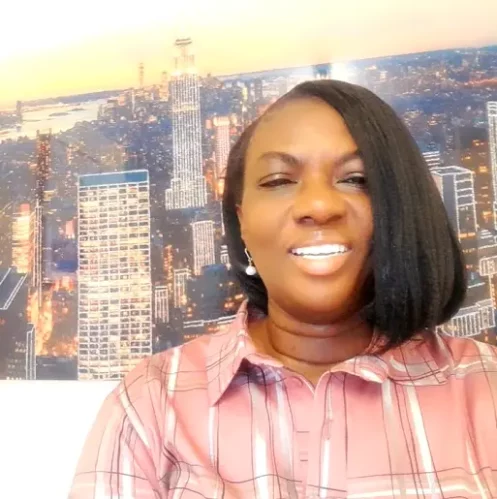What are the goals of Psychodynamic Counselling?
The main goals of psychodynamic counselling are to enhance your self-awareness and develop an understanding of your thoughts, feelings, and beliefs about your past experiences. We will achieve this together.
Free Association
Free association is the most important and most used tool I use as a psychodynamic counsellor. This technique is simple and effective – it’s a relaxed, non-structured approach and ensures that I am not leading you anywhere in particular - so that you are moving authentically from one subject to the next. Sometimes, free association can provoke an incredibly intense or vivid memory of a traumatic event, but it can also lead to a healing experience.

Therapeutic Transference
This is the redirection of feelings for a significant person, especially those unconsciously retained from childhood, onto me as your therapist. Through recognition and exploration of this relationship, you can begin to understand your feelings and resolve any conflicts with figures from your childhood.
Interpretation
During sessions, I may offer thoughts or interpretations of the topics you discuss, suggesting links between different feelings, situations and behaviours and helping you identify what’s going on unconsciously.
What to expect in Psychodynamic Counselling?
I offer open-ended sessions as psychodynamic therapy can be a relatively long-term form of therapy because often, we will have built-up defences that need to be worked around. These defences typically take the form of denial, repression, or rationalisation. The whole idea of things being suppressed in our unconscious is that we don't feel able to acknowledge them or aren't able to recognise them. This is where working with a trained therapist can be so helpful.
Defence Mechanisms
One topic that often emerges during our psychodynamic psychotherapy sessions is that of defence mechanisms. These are ways that you behave or think to protect yourself, and it frequently happens at the subconscious level.
- Denial - refusing to accept a fact or reality.
- Regression – reverting to an earlier stage of development.
- Dissociation – disconnecting from the real world.
- Acting out – resorting to extreme behaviour to express thoughts or feelings.
- Repression – blocking thoughts or feelings that are considered unacceptable.

During Sessions
You are encouraged to talk about whatever comes to mind, whether that is current issues, dreams, fears, or fantasies. I am trained to hear what you are saying out loud and to be attuned to what you may not be saying, what may be challenging to say, and other clues from your use of words and body language. We look at how early defences continue to exist compellingly, often below the radar, in the unconscious. Some of these defences may no longer serve you well, and you may be able to identify them in repeated patterns. During therapy, we will work together to create a thinking space where it is safe to express those feelings that may have left you feeling lonely and overwhelmed.
FAQs
Psychodynamic counselling is often used to support individuals experiencing anxiety disorders, long-term depression, relationship difficulties and experience of trauma or abuse. Psychodynamic counselling tends to suit people curious about their inner lives and recurring patterns of behaviour or those who want their therapist to take a relatively active role.
Depending on your individual needs, the number of sessions needed can vary from person to person. I offer short and long-term therapy and will discuss with you before we start counselling how many sessions you may require.
You may want to try counselling if you struggle to cope and find day-to-day life difficult. Talking to someone confidentially can make all the difference in exploring your feelings and discussing any problems you're experiencing. Finding the right counsellor can take time - it's essential that you feel comfortable and safe opening up to them.
Online counselling is offered on secure online platforms such as Zoom, Google Meet, or Teams. I email you a link before our session starts. With video counselling, your online sessions take place in the comfort and convenience of your own home. It can be helpful to ring-fence a few minutes of downtime after the end of each session to reflect and regroup before restarting your daily routine - replacing the journey time that we would have with a face-to-face session.
Starting counselling may feel daunting at first, and it is a brave decision. Counselling with me takes place in a confidential, safe space between you and me, where I listen with sensitivity and empathy - and without judgement. Together, we build a trusting relationship where you go at your own pace and feel comfortable expressing yourself openly and honestly.
During counselling, it is common to feel a range of emotions, which can sometimes be intense – whether it's a painful memory from your past or a traumatic childhood experience. It can feel liberating to share significant issues. Sometimes, you might feel deep sadness if you've found the session challenging or complex and are working through feelings that may have been buried. Sometimes, you might feel highly motivated if you've started to understand something new about yourself or feel like you've worked through some bottled-up feelings.
I offer open-ended counselling sessions, which means there is no time frame limit or constraint. I regularly review with clients how many sessions they may require. Most sessions start weekly to build momentum so you can make steady progress towards your goals.
Get in touch
Feel free to contact me if you have any questions about how counselling works, or to arrange an initial assessment appointment. This enables us to discuss the reasons you are thinking of coming to counselling, whether it could be helpful for you and whether I am the right therapist to help.
You can also call me on 07888 395865 if you would prefer to leave a message or speak to me first. I am happy to discuss any queries or questions you may have prior to arranging an initial appointment.
All enquires are usually answered within 24 hours, and all contact is strictly confidential and uses secure phone and email services.